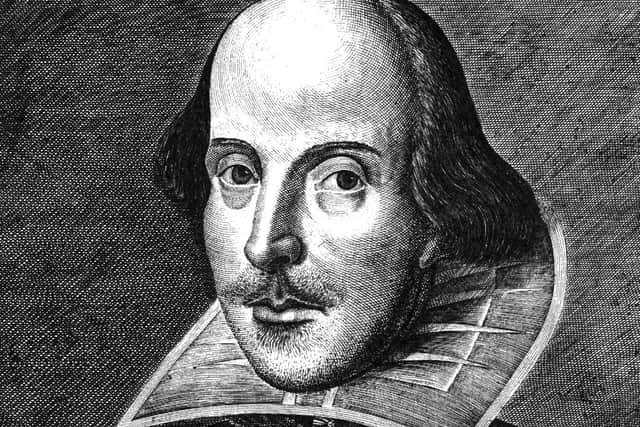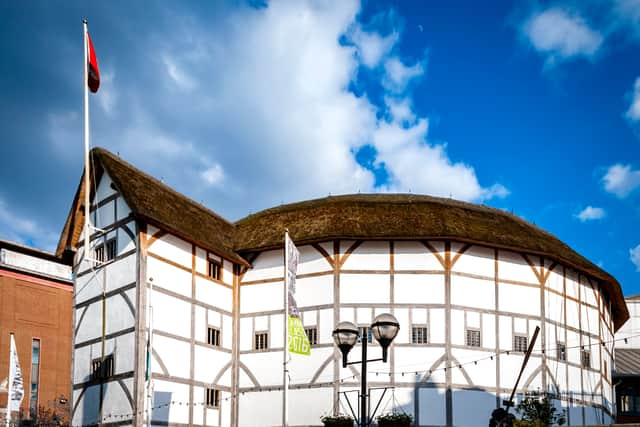William Shakespeare Day 2022: who was playwright, famous plays and quotes, where was he born, and other facts


Every year, on 23 April, devotees of renowned playwright and poet, William Shakespeare, celebrate his work and influence on modern culture.
Around the world, people dedicate this day to his plays, acting in and watching special performances and other events such as dressing up as favourite characters and visiting his birthplace.
Advertisement
Hide AdAdvertisement
Hide AdBut why is National Shakespeare day on 23 April, and what influences does William Shakespeare still have on modern society?
Here’s what you need to know.
Why is 23 April National Shakespeare day?
Although William Shakespeare’s birth date was never officially recorded, a lot of details about his life stem from registrar records, court records, wills, marriage certificates and on his tombstone.
Traditionally, Shakespeare’s birthday is celebrated on 23 April, as he was baptised three days later, on April 26 1564, at Holy Trinity in Stratford-Upon-Avon.
The date, 23 April, also marks his death date in 1616.


Shakespeare’s early life
William Shakespeare was born to John Shakespeare and Mary Arden, being the third of eight children, and the eldest surviving son.
Advertisement
Hide AdAdvertisement
Hide AdShakespeare was raised in Stratford-Upon Avon, during the Elizabethian era, and is said to be educated at the Kind’s New School, a grammar school, in Stratford leaving at the age of 14.
It is thought his schooling would have an emphasis on Latin, as that was the international language of Europe in the 1500s.
In 1582, at the age of 18, Shakespeare married 26-year-old Anne Hathaway and had three children, Susanna (born May 1983), and twins Hamnet and Judith (christened in 1583).
How do people celebrate National Shakespeare Day?
National Shakespeare Day, also known as William Shakespeare Day, was first proposed by Robert J Williamson, who founded the British Shakespeare Company in 1994.
Advertisement
Hide AdAdvertisement
Hide AdOn this date, people perform and watch Shakespeare’s famous plays, and a special procession occurs in Stratford Upon Avon ending with laying flowers on Shakespeare’s grave.
Paul Edmondson, Head of Research for The Shakespeare Birthplace Trust, told NationalWorld: "Each year in Stratford-upon-Avon, we mark his birthday with an unfurling of flags, a procession through the town from his Birthplace to his grave in Holy Trinity Church to lay flowers on his grave, and a special lunch at which we toast his immortal memory."
When asked about the importance of Shakespeare’s work on modern culture, he said: "Shakespeare makes us feel more liberated as people.
"He expands our intellect and our ability to empathise. He is one of the greatest of all dramatists because he tells us gripping, emotional stories with his own distinctive eloquence of poetry and prose.
Advertisement
Hide AdAdvertisement
Hide Ad"His greatness as an artist is what makes him captivating, and is the primary reason for his importance and survival."
The Shakespeare Birthplace Trust also holds a number of activities for families.
Sarah Fisher, from the Learning team, said: "We have created a number of resources for family audiences which bring Shakespeare to life, from creating a crown for Titania and Oberon, the King and Queen of the fairies in A Midsummer Night’s Dream; to drawing an Elizabethan portrait; to playing the board game Quills and Spills and discovering fascinating Shakespeare facts along the way."
Did Shakespeare really exist?
As documentation of Shakespeare’s life is so rare, and proof of authorship is limited, many people question how someone of humble beginnings and education gain such intimate political and court knowledge?
Advertisement
Hide AdAdvertisement
Hide AdSceptics favour Edward de Vere, the 17th Earl of Oxford, to be the true author behind Shakespeare’s plays as he was highly educated, and travelled to many of the places featured in the plays.
They state De Vere covered his identity due to some of Shakespeare’s works being so politically provocative.
However, these claims are just theories and have no evidence.


What were his most famous plays?
Shakespeare’s plays are considered among the greatest in the English language. Many of them are studied by students throughout the world, and have been subject to numerous adaptations both on screen and on the stage.
Advertisement
Hide AdAdvertisement
Hide AdHe was famously associated with the Globe Theatre in London and many of his plays were performed there. It was built in 1599 by Shakespeare’s playing company, the Lord Chamberlain’s Men.
Among the most well known of Shakespeare’s plays are Hamlet, the tale of the Danish prince who plots revenge against the uncle who murdered his father and married his mother.
Macbeth is a cautionary tale about political ambition and portays the story of a man who murders the Scottish King Duncan to take the throne for himself. It has earned a reputation in the theatre as being cursed and is referred to as ‘the Scottish play’.
The tragedy of two young Italian star-crossed lovers, Romeo and Juliet, was one of his most popular plays during his lifetime. And it has stood the test of time with the tale of the young couple whose deaths reconcile their feuding families inspiring West Side Story.
Advertisement
Hide AdAdvertisement
Hide AdWhile comedy A Midsummer’s Night Dream consists of five interconnecting plots, connected by a celebration of the wedding of Duke Theseus of Athens and the Amazon queen, Hippolyta. It is one of Shakespeare’s most widely performed plays.


What are some famous quotes from Shakespeare used in everyday life?
There are several everyday phrases that come straight from Shakespeare’s plays. However, these are just a select few :
Puking
Coming from As You Like It, it is thought this word comes from the German word "spucken" - to spit.
Vanish into thin air
This phrase is used in Othello, by The Clown, to make the musicians go away.
There’s a method to my madness
Advertisement
Hide AdAdvertisement
Hide AdUsed in Hamlet, it was used in the term that there is the reasoning behind the chaos of Polonious’ actions.
Wild goose chase
Used in Romeo and Juliet by Mercutio who says he can’t keep up with Romeo’s jokes and puns.
Stuff that dreams are made on/of
Prospero first says this phrase in The Tempest, as a way of saying that people’s lives, and his magic, are like dreams, experienced and then gone, without a trace.
To come full circle
In King Lear, Edmund says the phrase to mean he has completed a cycle, and his actions have come back to haunt him.
Comment Guidelines
National World encourages reader discussion on our stories. User feedback, insights and back-and-forth exchanges add a rich layer of context to reporting. Please review our Community Guidelines before commenting.
